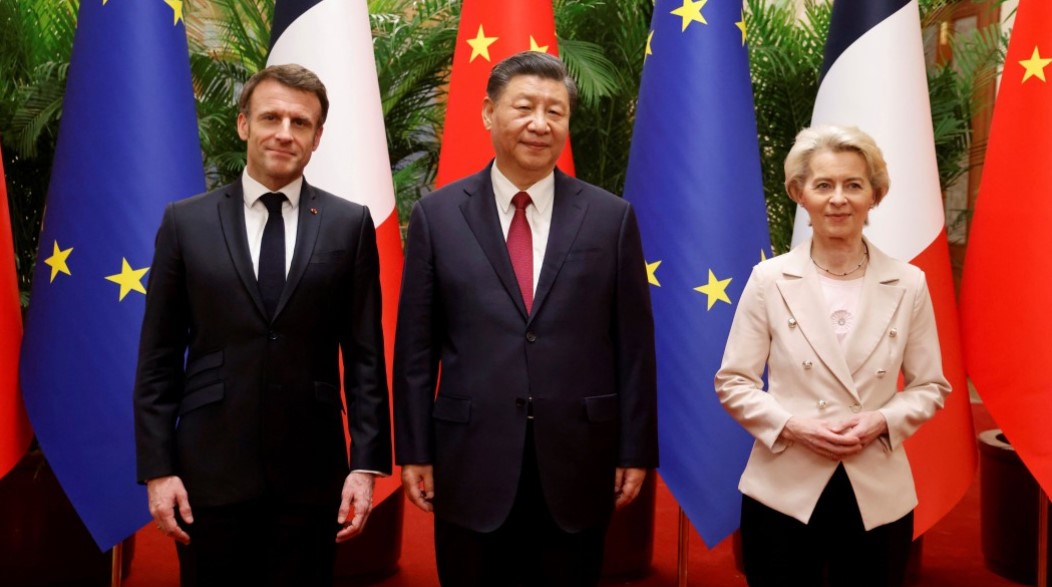
Trouble Of The Chips
Fri, 20 Jan 2023 | Reading Time: 3 minutes

Are rising smartphone prices making you scratch your hairs? Is it preventing you from buying one or you are unable to get the one you’d like to buy? Why is this happening and what is the way out? Let us delve into the current scenario resulting in an unprecedented mess that’s having the implications on the global economy. Powerful nations use oil to exert leverage over their customers. Now, with the arrival of the new currency of power-microchips, dimensions of the current global geopolitics have been changing and economic warfare is quite prevalent now.
In today’s modern era, many of the products like smartphones, tablets, laptops, gaming consoles, washing machines, medical devices, cars etc. rely on a very tiny thing called a chip, also known as a semiconductor. First of all, what is a semiconductor? A material product usually comprised of silicon that conducts electricity more than an insulator like glass but conducts less electricity than conductors like copper and aluminium. It’s sort of a best of the both worlds. The major players in the chip industry are South Korea, Taiwan, Japan, China & Singapore. But there is an unprecedented shortage of chips or semiconductors from consumer electronics to automobile manufacturers. What are the reasons for the above?
One of the obvious reasons is the demand and supply chain imbalance. As the pandemic unfolded, lockdowns forced people ranging from working professionals to students indoors. The demand for gadgets shot up as they required laptops, smartphones, tablets and webcams. But, due to the lockdowns the factories were already closing down. Another reason is the US- China trade war as recently the US added many Chinese companies to its ‘entity list’ that means the American companies would need government permission to sell certain technologies to them that is not as easy to secure. And the other is the Russia-Ukraine conflict has led to major setbacks to the already distressed economy causing major setbacks on the global economy leading to supply chain disruptions. Be it the smartphone manufacturers like Apple has been seen warning the chip shortage could affect their iPhone sales. Considering the automobile industry, car companies like Toyota, Ford, Nissan, Volvo, Volkswagen had to either slow down or temporarily halt their production. The Japanese giant Toyota is expected to cut its full year output target due to the chip shortage. Same goes with Nissan as it would trim production at several plants because of the chip shortage. Honda has cut down 40% of its vehicle production in Japan due to the supply problem. Volkswagen says the chip shortage will last till the end of 2023. Ford Motor lost 3.1 billion dollars due to chip shortage. The automotive industry accounts for 3% of the world’s total economic output. Some of the countries’ economies are dependent on their automobile industry. In Czech Republic there is 9% share of the automobile sector in GDP. While in Slovakia, there is 13% share of the automobile industry in its GDP. In India, there is 6.4% share of the automobile sector in its GDP and it has generated 30 million jobs.
The revival of the trip industry is an imperative. And it can be done by increasing manufacturing and expanding production to more and more countries. Like the Indian government is trying to step in by the help of schemes like “Make in India”. The Indian government is expected to give more than 1 billion dollars as cash incentives to each company that will manufacture their chips in India. The government has also given an assurance to the companies that the government and private players will line up to buy their chips made in India. Although India has stepped up into the field, but it will face tough competition from the other countries as well. Consider the example of the Biden administration that called for 50 billion dollars to boost US chip industry. From the very start of his administration, Biden has been pushing the call to focus on the chip industries. Thus, India should obviously see this as an opportunity and open its doors assuring the companies that it is a worthy candidate to trust upon. Moreover, India is now the second largest mobile manufacturer in the world after China. Well, India is trying good as well, as we have seen Karnataka collaborating with Israel’s ISMC to set up a 3-billion-dollar semiconductor plant in India. Taiwan’s Foxconn has also shared interest in setting up of chip factories in India. The chip race would be a boon for the global economy as it will calm down the global chip shortage and for the geopolitics too, as it will create an alternative to China.
Disclaimer
The opinions expressed in this article are the author’s own and do not reflect the views of Chanakya Forum. All information provided in this article including timeliness, completeness, accuracy, suitability or validity of information referenced therein, is the sole responsibility of the author. www.chanakyaforum.com does not assume any responsibility for the same.
Chanakya Forum is now on . Click here to join our channel (@ChanakyaForum) and stay updated with the latest headlines and articles.
Important
We work round the clock to bring you the finest articles and updates from around the world. There is a team that works tirelessly to ensure that you have a seamless reading experience. But all this costs money. Please support us so that we keep doing what we do best. Happy Reading
Support Us




















POST COMMENTS (1)
Sinchan